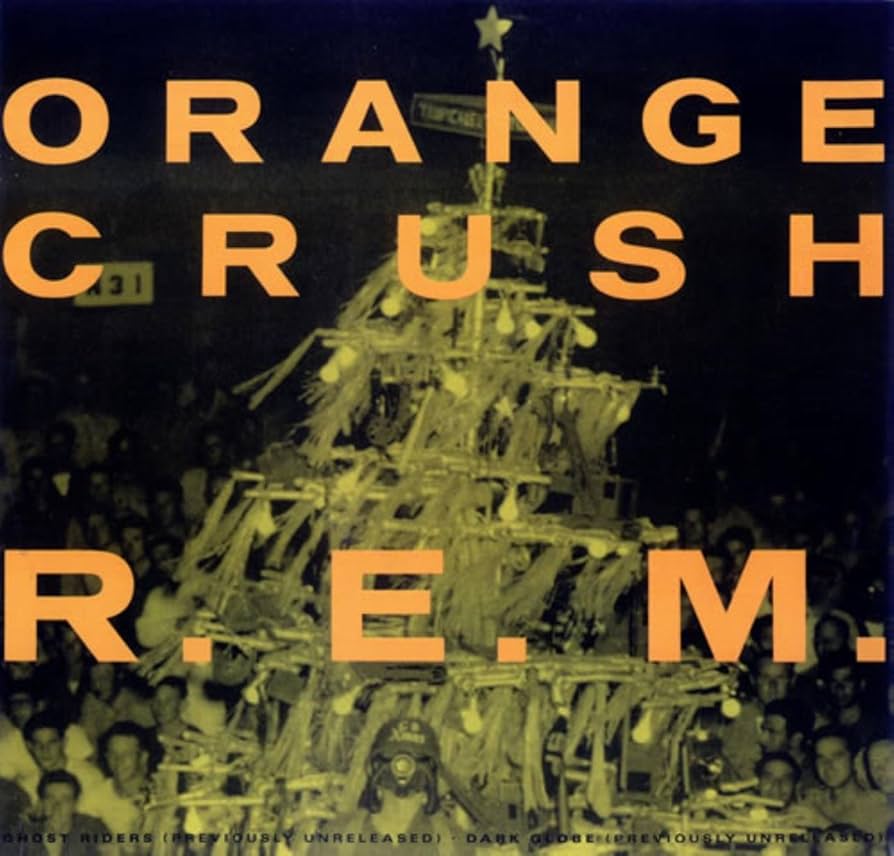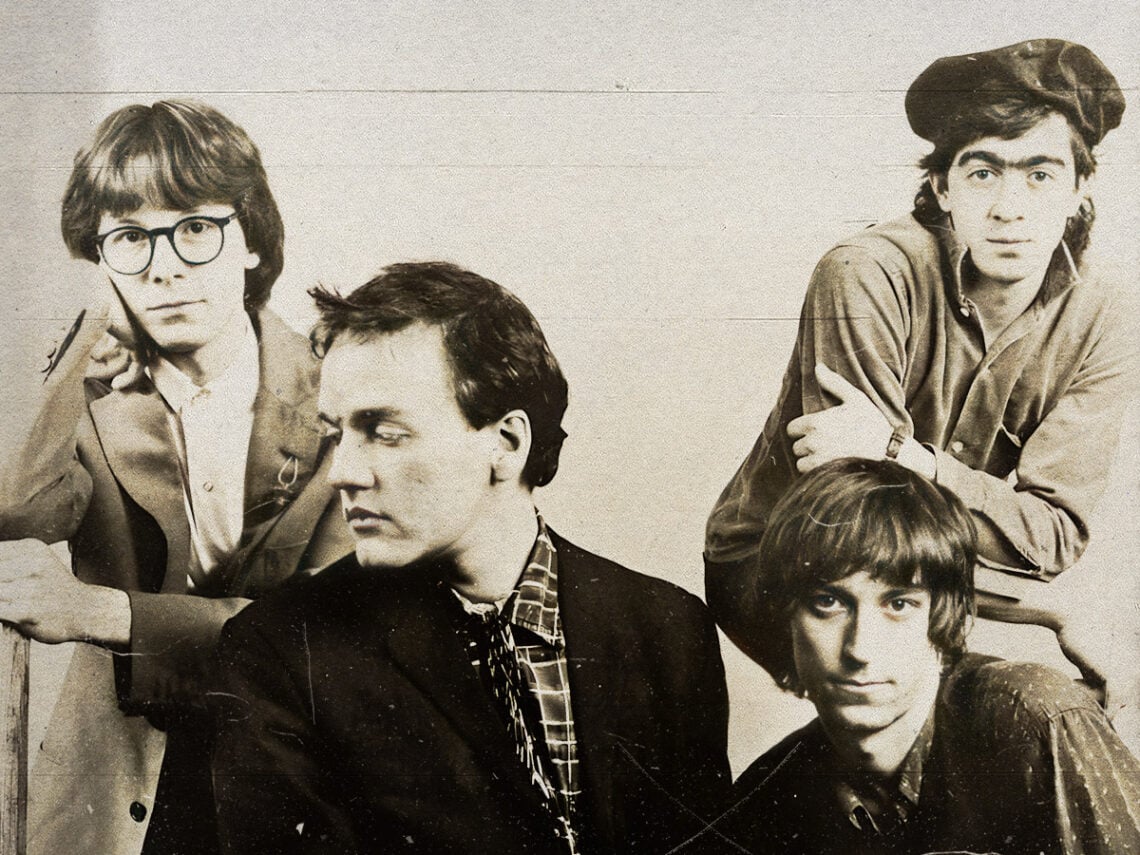Song Stories: R.E.M: Orange Crush
Released in 1988 as a part of their brilliant "Green" album "Orange Crush" is one of the bands most politically charged songs, although named after a popular fizzy drink found in America, the song is actually a powerful commentary on war, nationalism, and the psychological toll of military service. Its a song full of introspective lyrics and hidden cryptic messages that provoke many thoughts within the listener.
The title “Orange Crush” is a reference to Agent Orange, a toxic chemical defoliant used by the United States military during the Vietnam War. Agent Orange was deployed to strip dense forests of their leaves, making it harder for enemy forces to hide. However, the chemical had devastating effects on both the environment and the health of those exposed to it, including thousands of American soldiers and countless Vietnamese citizens who suffered from cancer, birth defects, and other severe health issues as a result.
Frontman Michael Stipe, a well-known advocate for social and environmental causes, drew from these real-world horrors in crafting the song’s lyrics. Though the words themselves are somewhat abstract, they reflect the impact of war on soldiers, the indoctrination of patriotism, and the often-overlooked human cost of military action. Stipe himself said the song is about “a soldier’s experience in Vietnam, and coming home and being forgotten, treated as less than human.”

From the very first line, “Orange Crush” signals an uneasy journey. Stipe’s fragmented, almost stream-of-consciousness lyrics reflect both pride and bitterness. With lines like “We are agents of the free,” the song highlights the contrast between the glorification of patriotism and the grim realities of war. This duality captures a powerful contradiction soldiers often face: serving their country while grappling with moral and ethical dilemmas about the purpose and cost of their mission.
The lyrics are infused with military imagery and coded references, like “I’ve got my spine, I’ve got my Orange Crush.” The “spine” could signify a sense of fortitude or resilience, while “Orange Crush” speaks to the haunting presence of Agent Orange. The lyrics are vivid yet indirect, which adds to the haunting quality of the song, making listeners feel the song’s intensity without fully comprehending it on a surface level
Musically, “Orange Crush” stands out within R.E.M.’s discography for its intensity and urgency. The song is driven by a pulsing beat from drummer Bill Berry and a relentless bassline from Mike Mills, creating a sense of forward momentum that mirrors the lyrics’ militaristic themes. The production, handled by Scott Litt and the band itself, uses layers of sound to evoke a kind of sonic battlefield. The echoing vocals, steady rhythm, and dense instrumentation create a feeling of disorientation, as though the listener is plunged into the chaos of war.
One of the song’s most distinctive features is the use of spoken word over the bridge, with Stipe delivering military-style orders as if he were a commanding officer. This not only adds to the militaristic theme of the song but also drives home the idea of the soldier’s experience as being depersonalized and directed by someone else’s commands.
R.E.M.’s “Orange Crush” serves as a profound example of how music can be a powerful tool for social commentary. It’s a song that’s musically captivating, lyrically rich, and thematically deep. As with much of R.E.M.’s work, it’s the layers and subtleties within “Orange Crush” that give it its lasting power.
The song became one of the bands biggest hits, and was a huge part in kick starting their ascent to becoming one of the biggest bands in the world. On the tour for the "Green" album the band played the song every night. With the band playing int the miltary theme, Stipe would wear combat inspired attire, and opened the song with the US Army recruiting slogan "Be all you can be... in the Army."

The success of “Orange Crush” helped to elevate R.E.M.’s image from a college rock favorite to a serious, intellectual band with important things to say. The song’s socially conscious lyrics and themes gave the band credibility, positioning them alongside artists known for their activism, like U2 and Bruce Springsteen. By tackling topics like the impact of Agent Orange on soldiers, they offered a layer of sophistication and depth that appealed to critics, music journalists, and an educated fanbase hungry for art with a message.
As they gained mainstream attention, R.E.M. also attracted listeners who weren’t necessarily fans of politically charged music but were drawn to the band’s unique approach, their jangly guitars, and Michael Stipe’s enigmatic vocals. This combination of musical appeal and intellectual credibility allowed R.E.M. to carve out a niche that few bands occupied at the time, further propelling them to popularity.
The release of the “Orange Crush” music video on MTV was another major factor in the song’s popularity and R.E.M.'s expanding influence. The video’s stark imagery, featuring military themes, soldiers in combat, and Stipe’s intense on-screen presence, added a visual layer to the song’s narrative. MTV was in its prime during this era, and the song’s rotation on the channel helped R.E.M. reach a younger, visually oriented audience.
The legacy of “Orange Crush” lies not only in its message and its musicality but also in the way it transformed R.E.M. into pioneers of alternative rock, making the band one of the first to prove that mainstream success and authenticity could coexist. By broadening their audience and setting the stage for a decade of alternative rock dominance, “Orange Crush” ensured that R.E.M. would be remembered as one of the most influential bands of their era.
Thank you for reading
Jack